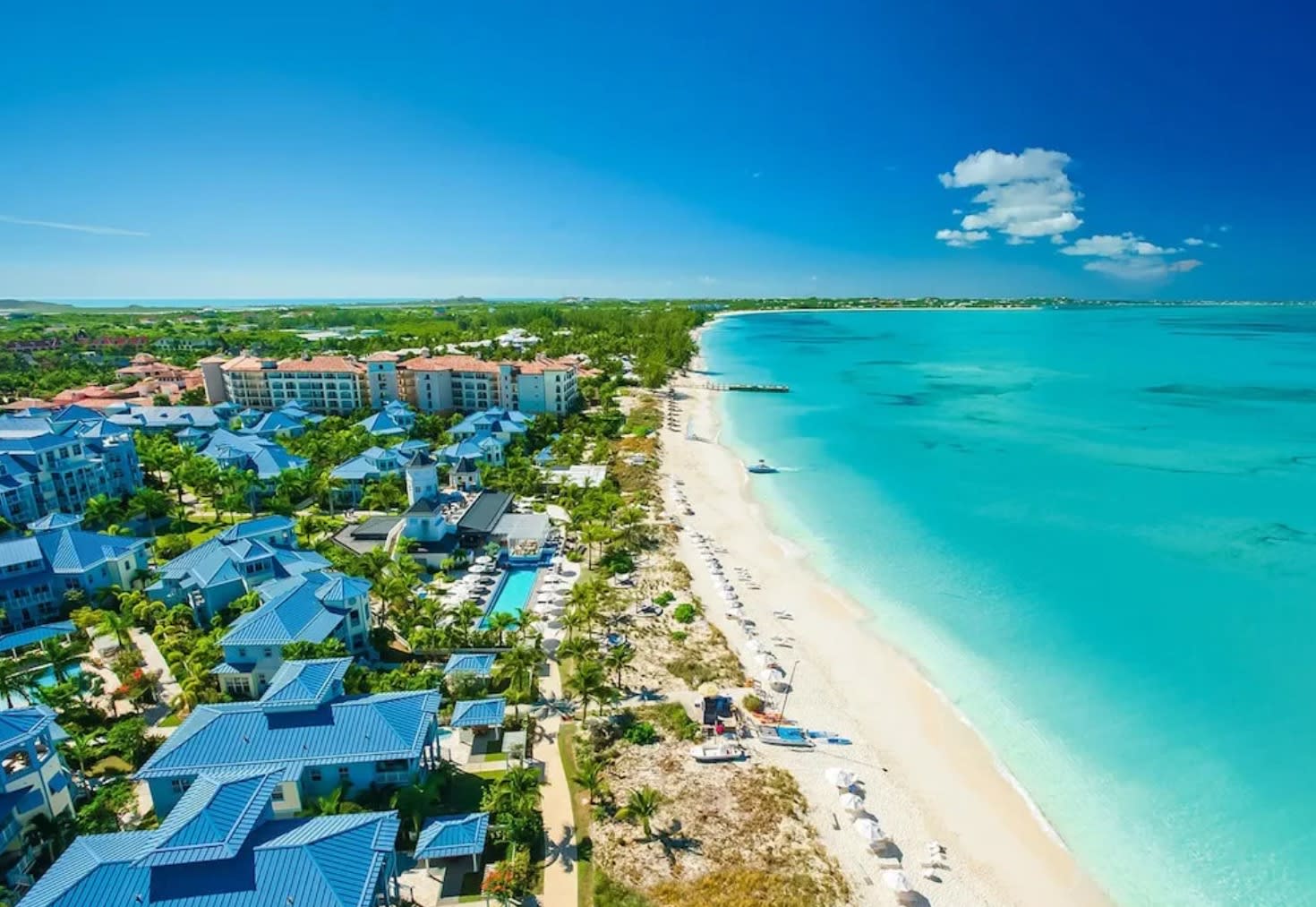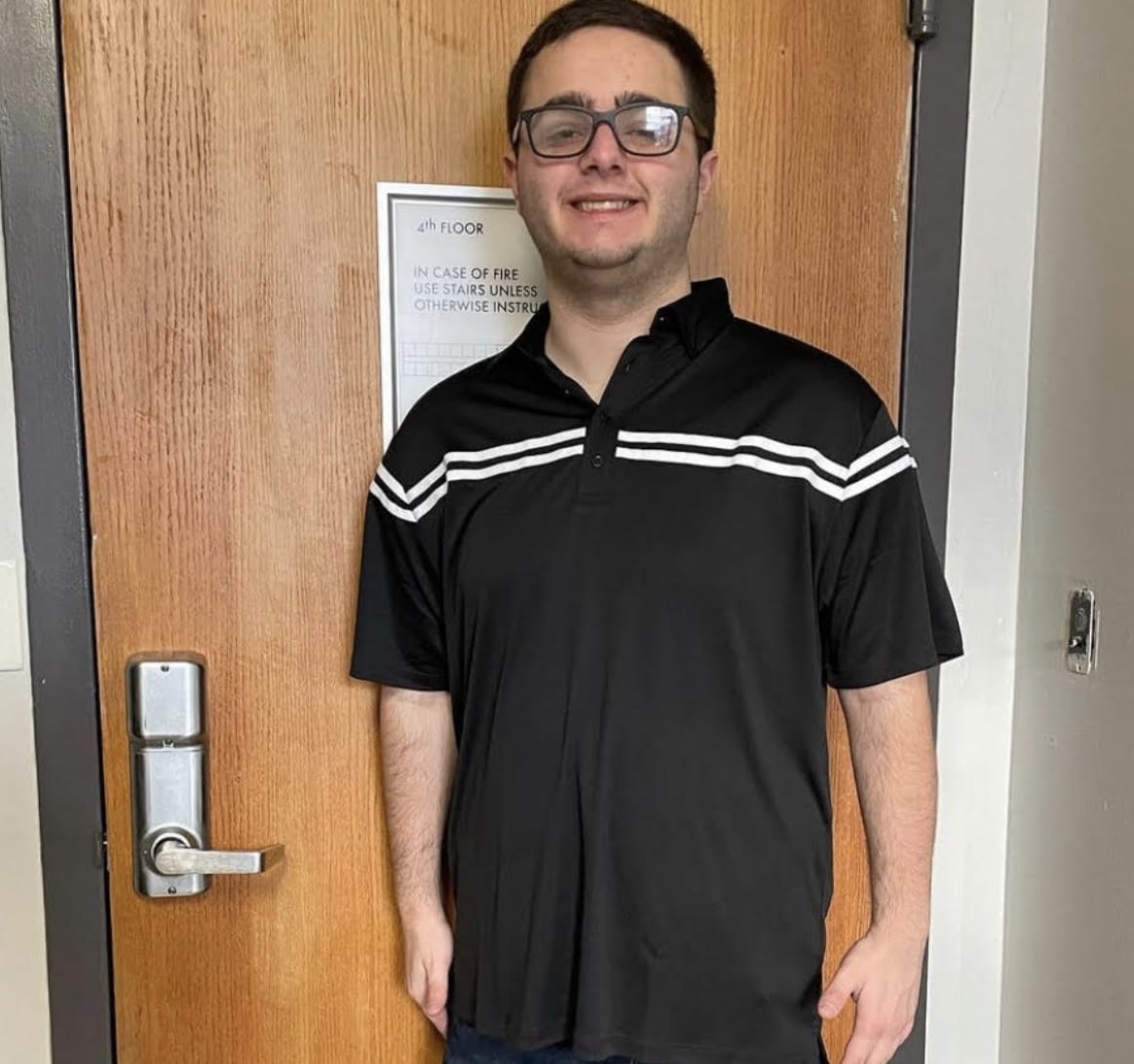
Image courtesy of Beaches Turks and Caicos
In honor of Autism Awareness Month, Fora had the pleasure of chatting with Matthew Alexander, an internationally recognized Certified Autism Travel Professional (CATP). As someone with Autism himself, Matthew is passionate about creating travel experiences for everyone.
Matthew brings a unique perspective to the travel world — combining personal experience with a commitment to advocating for neurodivergent travelers. With years of hands-on expertise and a hope to raise awareness, he’s helping pave the way for greater accessibility to travel destinations. Keep reading as Matthew shares his journey, certifications and hopes for a more inclusive travel landscape.
You’re a Certified Autism Travel Professional. Can you explain what that certification is and what it means to you?

Image courtesy of Matthew Alexander
The Certified Autism Travel Professional (CATP) certification by the International Board of Credentialing and Continuing Education Standards (IBCCES) is a valuable credential, and it means the world to me to have this certification. As someone on the Autism Spectrum, I am deeply passionate about ensuring individuals with Autism and their families can experience truly unforgettable vacations. This certification demonstrates a commitment to ongoing professional development and a deeper understanding of Autism, enhancing credibility and providing specialized knowledge and skills. CATP certification equips professionals with practical strategies to improve outcomes and, for me personally, empowers me with the knowledge to help individuals with Autism and their families plan and enjoy travel experiences they will cherish forever.
What are some sensory needs or considerations that impact how you plan your trips?
For me personally, when planning trips, a significant sensory consideration revolves around food. I like to choose destinations where I know there will be restaurants in the area that I'm already familiar with. Before even booking, I often look up the menus of nearby restaurants online. This helps me avoid places that heavily feature foods I have texture sensitivities to, specifically sweet potatoes and cauliflower. I also make it a point to call restaurants ahead of time to inquire about their ability to accommodate individuals with food sensitivities. If a restaurant isn't willing to make substitutions or adjustments, I'll generally avoid it.
However, it is absolutely imperative to remember that these are my personal sensory needs related to food, and the specific considerations will vary significantly depending on the individual being supported when booking travel. Autism is a spectrum, and what presents as a challenge for me may not be for someone else. Autism shows up differently in everyone. Therefore, it is crucial that we are actively asking the individuals themselves, or the people supporting them (if they are non-verbal), about their specific sensory challenges and their interests. This allows us to plan travel experiences that are truly tailored to their unique needs and preferences, ensuring a more positive and comfortable trip.
What makes a hotel truly Autism-friendly?
What truly makes a hotel Autism-friendly goes beyond just being welcoming; it requires a deliberate and thoughtful approach to cater to the unique needs of individuals with Autism and their families. A crucial element is the provision of sensory-friendly areas. Having designated spaces where individuals can retreat to and regulate their sensory input is incredibly valuable. These calm-down areas can help prevent meltdowns and provide a safe and comfortable environment when needed.
Beyond the physical environment, the attitude and training of the staff are paramount. For a hotel to be truly Autism-friendly, the staff needs to be not only friendly in a general sense but also demonstrably patient and understanding towards individuals with Autism. This includes awareness of sensory sensitivities, communication differences and potential behavioral responses. When staff are well-informed and empathetic, it creates a truly inclusive and supportive atmosphere where individuals with Autism and their families can feel comfortable and respected.
Can you share a positive hotel experience you’ve had?

What truly exemplifies five-star customer service, and something I'll never forget, is the way Disney Resorts and their dining establishments handled my childhood allergies. Growing up with allergies to dairy, gluten and red food coloring, dining out could be a challenge. However, at Disney, it was a completely different experience. I vividly remember that on multiple occasions, when my family advised the restaurants of my allergies, the executive chefs themselves would come to our table. They would personally walk us through the menu, pointing out what was safe for me to eat and what I needed to avoid. That level of personalized attention and their genuine care in ensuring I could enjoy my meals just like everyone else was truly remarkable and left a lasting positive impression on me. It's the kind of proactive and thoughtful service that sticks with you.
Beyond the incredible culinary experiences, the overall atmosphere and the interactions with cast members also contributed to these standout moments. I specifically remember being in one of the Disney theme parks — I believe it might have been Magic Kingdom — and this lovely lady named Sarah came up to my table while we were taking a break. She simply said hello with a warm smile, and then she let me give her a high five! It was such a small gesture, but it completely brightened my day. It made me feel so welcome and connected, and it really brought that “happiest place on earth” feeling to life. Those little moments of human connection, where cast members go out of their way to be friendly and make guests feel special, are what truly elevate a Disney vacation and create memories that last a lifetime.
Are there any hotels you’d recommend for travelers with Autism?

Image courtesy of Beaches Turks & Caicos
For families with individuals with Autism, Beaches Resorts offers peace of mind with a staff that is genuinely knowledgeable and continuously trained in Autism support. Woodloch Pines Resort in Pennsylvania provides endless entertainment year-round for all ages and interests. The added benefit of vacation rentals at Woodloch allows for a comforting home-away-from-home feel and the convenience of preparing meals. Both resorts deliver the ease and value of an all-inclusive vacation
On the flip side, have you encountered challenges when staying at hotels?
One of my biggest frustrations with hotels is the discrepancy between what they advertise and the reality of their services. My recent stay at a local hotel highlighted this perfectly: a non-working digital key and a closed indoor pool — information that wasn't shared at check-in. This lack of transparency and follow-through is incredibly disappointing. For individuals with Autism, clear and honest communication is not just a preference; it's a necessity.
Are there certain types of destinations or environments that tend to feel safer or more manageable?

That's a really insightful question, and the most accurate answer is that it truly depends entirely on the individual, as what one person finds to be a safe and manageable destination or environment can be overwhelming for someone else, especially when considering the Autism spectrum; the beauty and complexity of Autism lie in its spectrum nature, meaning predictability for one, like a quiet nature retreat, might differ greatly from another who enjoys a bustling city with clear transit.
Therefore, successful trip planning for individuals or families necessitates collaboration and open communication, where families and advisors work closely with the individual to understand their unique sensory sensitivities, communication preferences, interests and comfort levels, focusing on tailoring environments and activities to those specific needs rather than seeking universal “safe” destinations.
If you could give hotels one key piece of advice, what would it be?
If I could give hotels one key piece of advice to improve accessibility for travelers with Autism, it would be to prioritize proactive and clear communication between the hotel and the guest before arrival. For example, a family should not have to arrive at the hotel only to discover that a requested amenity isn't available or that the specific room type needed for accessibility reasons is not as expected. This includes ensuring that requests like being near the elevator for mobility concerns are honored accurately, not resulting in a room located far away.
Furthermore, while training for staff on interacting with individuals with Autism is crucial, its effectiveness hinges on the willingness of both staff and management to actively apply that knowledge in their daily interactions with guests. True accessibility goes beyond simply understanding; it requires a genuine commitment to utilizing that understanding to ensure a comfortable and predictable stay for travelers with Autism.
What advice would you give to someone who has Autism and wants to start traveling?
For someone with Autism who wants to travel, thorough preparation is key. Research destinations for sensory aspects and accessibility, create detailed itineraries with buffer time, pack comfort items, and consider off-peak travel. However, the best advice is to use a travel agent specializing in accessible travel. They have relationships with hotels worldwide to find accommodations that meet specific needs. More importantly, if issues arise, the Fora Advisor can step in and assist, reducing stress and the need for independent problem-solving. Combining preparation with Fora Advisor support will lead to a smoother and more enjoyable travel experience.
Read more about Accessible Travel.
